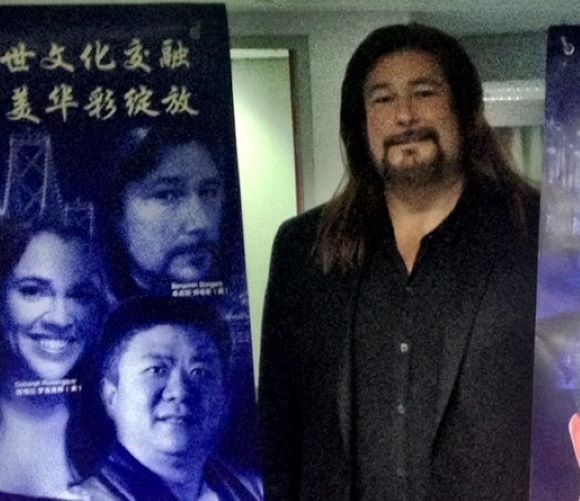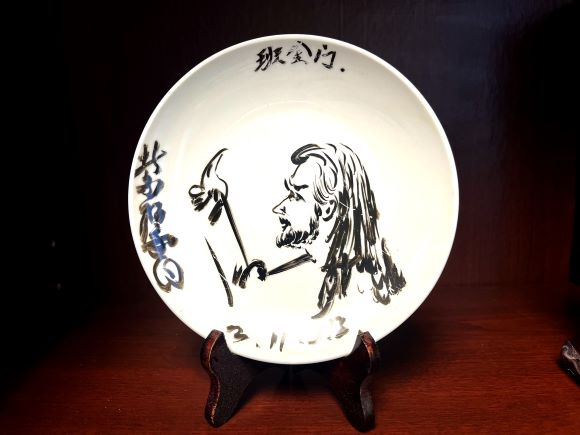Butker, Buddha, and Baal
I love being right. And I’m willing to bet you do, too. But am I always right? Just ask my wife! You will get a response with eyebrows raised, a tight smile, and a reply, “He likes to think he is.” As much as we all want to be right in our opinions, perspectives, and moral perspectives, we sometimes need to take a giant step back and look at what we’re doing through the eyes of the person across from us and ask, “What’s their intent?”
We’ve had a rather ferocious few weeks of talk about an NFL kicker’s commentary on life in a commencement speech he made at a Catholic college. The comments have been anything from “He’s an angel sent from God…” to “He’s the devil himself!” The point is his comments are from his perspective, from his form of mortal training, and his particular background. So, who’s right? But more importantly, what was his intent?

A Little Story
As many of you know, I was an opera singer in a different life. I was blessed to sing for an international broadcast, the first American to sing with the Beijing National Symphony in Beijing, China. Apart of the agreement was to get a myriad of vaccinations, stand in line at the consulate to get my visa, and to make sure I wore no… and I mean no religious articles in any way, shape, or form. The consul himself pulled me into a little interrogation room in San Francisco and pressed upon me the importance of this last item. He confided in me, “We’ve had people slip up in the past and, well… it almost created an international issue. They were held in a Chinese prison camp for several months while we tried to get them out.” I assured him I’d leave any outward items of my faith in the US.
Once in China, it was a whirlwind of rehearsals, travel junkets, and state-sanctioned sightseeing. We were always escorted by translators and an entourage of plain-clothed security. One beautiful afternoon, we were taken to the Emperor’s Summer Palace and garden on Kunming Lake. It was truly spectacular. The artistry of gardens and architecture was breathtaking. While I was standing on the water’s edge, looking out at a stone boat in the lake, there was a flurry of activity to my left. A man with a small, maybe 6-inch diameter, white porcelain plate approached me, and the plain-clothed security tackled him to the ground.

I asked my translator what was happening, and he said the man had been caught “taking your image illegally.” I asked him to explain further. He said the man had been drawing my image on the plate with an ancient dye and that that was a religious practice long outlawed in China. I asked if I could see the plate and drawing and if I could speak with the man. Reluctantly, the authorities brought the man to me with the plate still in his hand. I asked if the guards would let go of him and take a few steps back, which they reluctantly did.
The man before me was in his early sixties, weighed maybe 90 pounds, and stared at the ground. I asked his name, and the translator said, “Xi Zin.” I wondered if I could see the plate and what he had been drawing. Sheepishly, he handed it to the translator, who gave it to me. It was an astounding freehand drawing of me looking out into the lake, and in my hand was a handkerchief raised up in the breeze. I asked if he knew who I was, and he shook his head no. I complimented the man on his work and told him he captured a very flattering side of me. The man looked up for the first time.

I asked why he was doing such a beautiful drawing of a complete stranger. He said that he had been an artist his entire life and that even though it used to be done to capture people’s souls several thousand years ago, he liked to give the person a souvenir of coming to his country. He then added an apology and gave me a very profound bow. I asked if he would do me a favor. The man gave a very anxious look but agreed with a nod. I wondered if I might keep the plate, but first, if he would sign it and put my name on it. The man gave another profound bow and took the plate back. He signed the plate with a huge smile, and then he and the translator went back and forth on how to write my name phonetically with Chinese characters. Once completed, the man came to me and bowed at the waist, holding the plate out to me with outstretched arms in both hands. I offered to pay for the plate, but the man completely refused. He would not even consider a small fee, the equivalent of $5 American.
After the man left, the translator asked, “You did not take offense at what the man did. Why?” I asked in return, “Why would I take offense?” He replied, “Because what he did was a highly treasured Buddhist act a thousand years ago. Christians taught us that was evil, so we outlawed doing it many years ago. Why are you not offended?” I told the translator, “Because of the man’s intent. He did not mean to offend. He meant to give joy. He did not intend to ‘capture my soul,’ he merely wanted to capture the moment.” I looked at the plate and said, “He did a wonderful job!”
I now have that plate displayed in my office.

What We Do and Say
What people do and say may cause a stir, friction, or gasps of consternation. What we must ask is what their intent was. The followers of Baal 3,000 years ago followed a false god. But were they all evil? I’d guess not. Most of the people were everyday folks trying to get along as best they could. Yet today, we categorically think they were evil if they weren’t from the chosen people. I could have insisted the man taking down my image go to prison for doing something that had been outlawed because of an outdated idea. And a certain NFL kicker is being painted with a very wide and colorful brush because of something he said in a speech. Were the followers of Baal all evil? Was the man doing a Buddhist practice in Beijing doing an evil thing? Is speaking your mind an evil thing? If you ask me when you see me, I look at you and ask, “I don’t know. What’s their intent.”

















